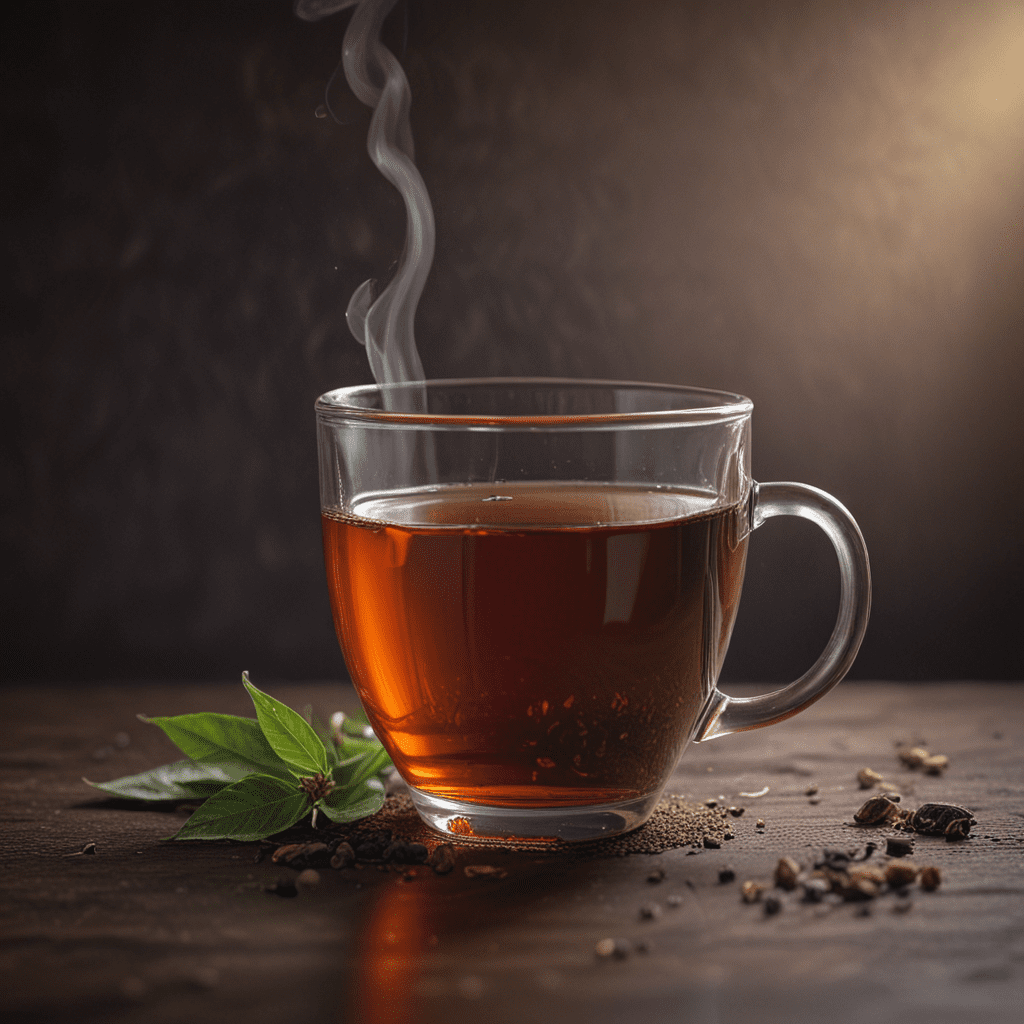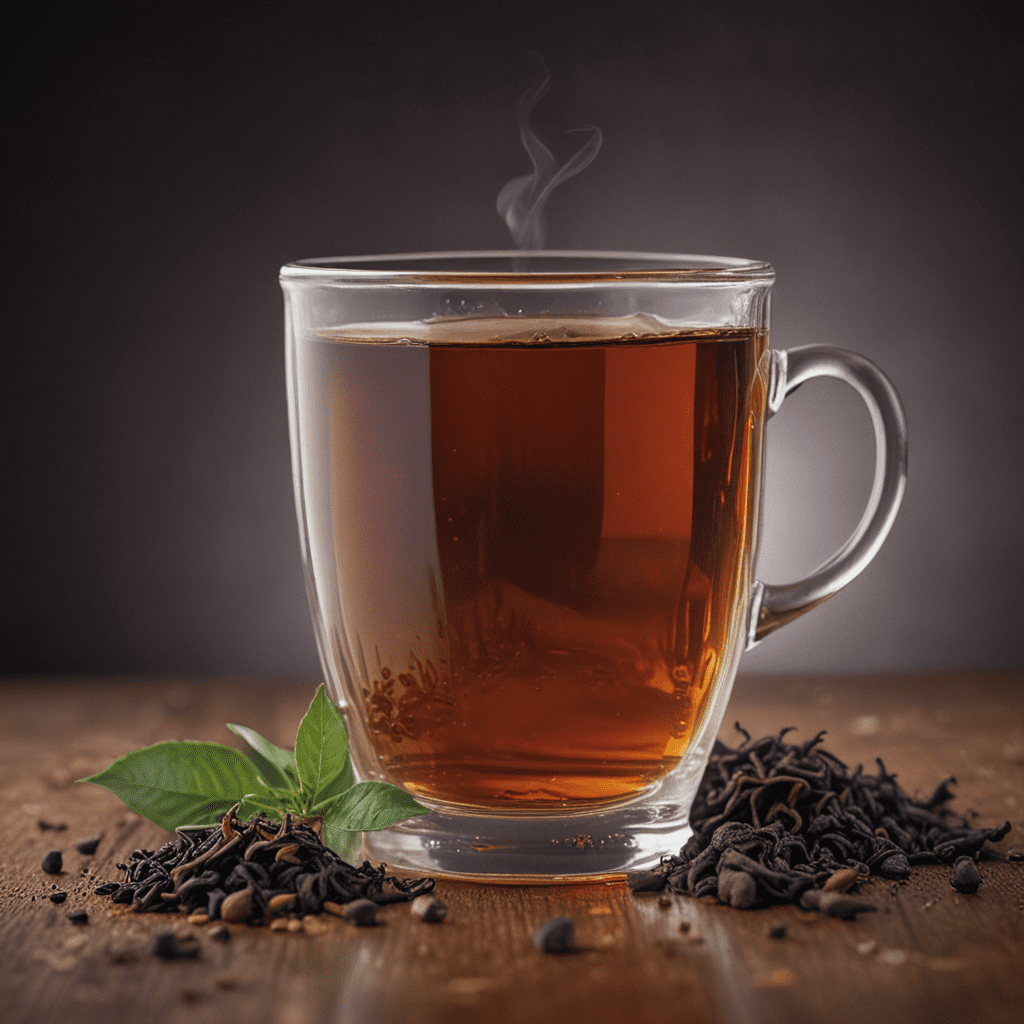Assam Tea: Aromatic Elegance in Every Sip
Introduction
Assam tea, a symphony of flavors and aromas, is a delectable beverage that has captivated tea enthusiasts worldwide. Its distinctive character and robust flavor profile have earned it a place among the most sought-after teas. Hailing from the verdant landscapes of Assam, India, this exceptional tea boasts a rich history, unique terroir, and an array of health benefits.
History and Origins of Assam Tea
The origins of Assam tea can be traced back to the mid-19th century when British planters discovered wild tea trees thriving in the Brahmaputra Valley. Recognizing the potential of these indigenous plants, they began cultivating them on a commercial scale. By the early 20th century, Assam had emerged as the largest tea-producing region in the world.
Terroir and Growing Conditions
The unique flavor of Assam tea is attributed to its terroir, a combination of environmental factors that influence its characteristics. Assam's tropical climate, abundant rainfall, and fertile soil provide the ideal conditions for tea cultivation. The tea gardens are nestled at the foothills of the Himalayas, where the mist-laden air nourishes the tea bushes, imparting a distinctive depth of flavor.
Varieties of Assam Tea
Assam tea encompasses a diverse range of varieties, each offering a unique flavor profile. The most prominent varieties include:
- Assam CTC: This robust and full-bodied tea is characterized by its brisk malty flavor and dark amber liquor.
- Assam Orthodox: Processed using traditional methods, this tea exhibits a complex and nuanced flavor with hints of caramel and spice.
- Assam Green Tea: A refreshing and herbaceous variant, Assam green tea offers a vibrant green liquor and a mild, vegetal flavor.
Sensory Characteristics of Assam Tea
Assam tea is renowned for its robust yet balanced flavor profile. It possesses a full-bodied character with hints of malt, caramel, and spice. The liquor is typically dark amber in color, with a rich aroma that fills the senses. Assam tea's astringency is relatively low, making it a smooth and pleasant beverage.
Health Benefits of Assam Tea
Beyond its delectable taste, Assam tea offers a range of health benefits. It is rich in antioxidants, which help protect the body against free radical damage. Assam tea has also been shown to improve digestion, boost the immune system, and reduce the risk of cardiovascular disease.
Brewing Techniques
Brewing the perfect cup of Assam tea requires precision and care. For CTC teas, use boiling water and steep for 3-5 minutes. Orthodox teas require a lower brewing temperature (80-85°C) and a longer steeping time (4-6 minutes). Assam tea can be enjoyed with or without milk and sugar, depending on personal preference.
Role in Assam’s Economy and Culture
Assam tea is an integral part of the state's economy and culture. It is a major source of livelihood for millions of farmers and contributes significantly to Assam's GDP. Tea is also deeply embedded in Assamese traditions and is a symbol of hospitality and social gatherings.
Future Prospects and Sustainability
The future of Assam tea looks promising, with increasing global demand for premium quality teas. However, sustainable practices are crucial to ensure the longevity of the industry. Agroforestry, organic farming, and water conservation initiatives are being adopted to preserve the tea ecosystem and minimize environmental impact.
FAQ
Q: What is the difference between CTC and Orthodox Assam tea?
A: CTC (Crush, Tear, Curl) teas are processed using machines, resulting in smaller, more uniform leaves. Orthodox teas are processed by hand, producing larger, whole leaves that retain more of their natural flavors.
Q: Can Assam tea be brewed multiple times?
A: Orthodox Assam tea can be brewed multiple times, with the flavor profile changing slightly with each subsequent brew. CTC teas are typically brewed once.
Q: What is the best way to store Assam tea?
A: Assam tea should be stored in an airtight container in a cool, dark place. Avoid exposure to moisture and light to preserve its flavor and aroma.

